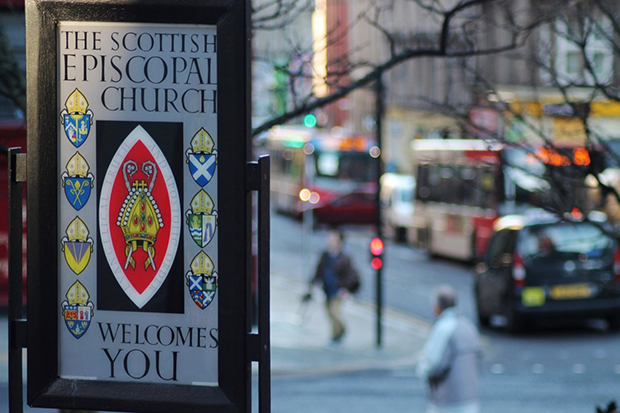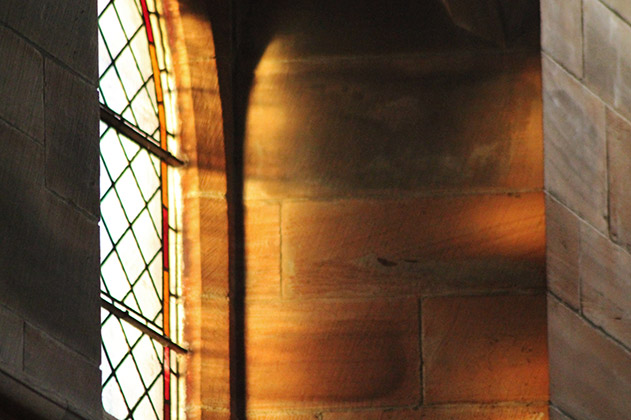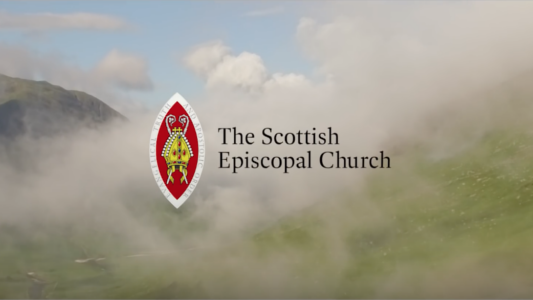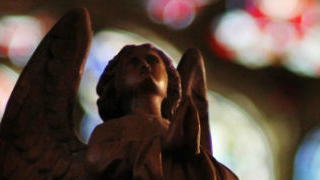All baptised Christians are called to minister in God’s Church. Our baptismal vows in the Scottish Episcopal Church commit us to proclaim the good news, serve Christ in all people, to work for justice and peace, honouring God in all Creation, as well as to continue our faithful ministry of Christian worship.
Some Christians are called to minister in particular ways. There is a wide range of ministries in most congregations, including serving at the altar, ministry to children and young people, being a Vestry member, welcome, administration and maintenance.
There are also different kinds of authorised public ministry for members of the Scottish Episcopal Church. You can find detailed information about them and how people are selected and formed for them here.
Lay Readers
Lay Readers preach and teach as lay theologians and are often involved in pastoral work too. They work closely in collaboration with their priest to support and develop the life of the congregation.
Some of them have a particular ministerial role in the wider community. Readers are trained to at least Certificate level by Scottish Episcopal Institute. They are not normally paid a stipend for their work.
Find out more about the discernment process for Lay Readers here.
Deacons
Working closely with the Bishop and the priests with whom they serve, Deacons are heralds of God’s kingdom, proclaiming the good news in church and community. Deacons seek to serve others, bring the concerns of the world back to the congregation in preaching and intercession, and encourage Christians to bring the love of God to their communities in mission.
Vocational deacons are ordained to serve in that role. They may work in various contexts: in local churches, in chaplaincy, or in mission-based roles. Most vocational deacons are self-supporting but in some contexts they may be paid a stipend for their work. In addition, all priests serve for at least a year as a transitional deacon.
Deacons are trained to at least Diploma level by the Scottish Episcopal Institute.
Find out more about the discernment process for deacons
Priests
The English word “priest” is derived from the Greek word presbuteros – “presbyter”. As members of the presbyterate, they lead congregations in mission, encouraging God’s people to share the good news of the Kingdom with those around them. Priests are called to proclaim the good news (heralds), to gather and nurture Christian communities (stewards), and discern the signs of the times (theological interpreters).
Whilst there are no doctrinal differences between the orders of stipendiary and self-supporting priests, there are very often differences in responsibility for the practice and oversight of ministry and mission: the equality of order does not lead automatically to an equality of responsibility. Some priests serve as incumbents of a charge, gathering and nurturing people through preaching, teaching, sacramental ministry, and pastoral care. Some serve as assistant priests and they may have a variety of roles: mission-based, chaplaincy, or as part of a team ministry. Priests may be paid a stipend for their work (incumbents normally are) or may be self-supporting or remain in secular employment.
Priests who teach or exercise other specialised ministries, participate no less in the presbyterate of the diocese, in communion with the bishop, and through the bishop with the Church as it expresses its life in Christ sacramentally and synodically.
Priests are normally ordained as a deacon first, and then as a priest after a year. They are trained to at least Diploma level by the Scottish Episcopal Institute (SEI), and for incumbency normally complete degree level training within 6 years of training.
Chaplains
Some lay or ordained ministers may be called to work as a chaplain in a school, hospital, or university. They will normally have had some experience of congregational ministry first and may or may not be paid a stipend.
The Religious Life
Some people may be called to be a nun or a monk, a friar or a sister. They may live in community, or continue their life outside as an oblate, or associate member.
Find out more about the Religious Life in the Scottish Episcopal Church and Anglican Communion.







